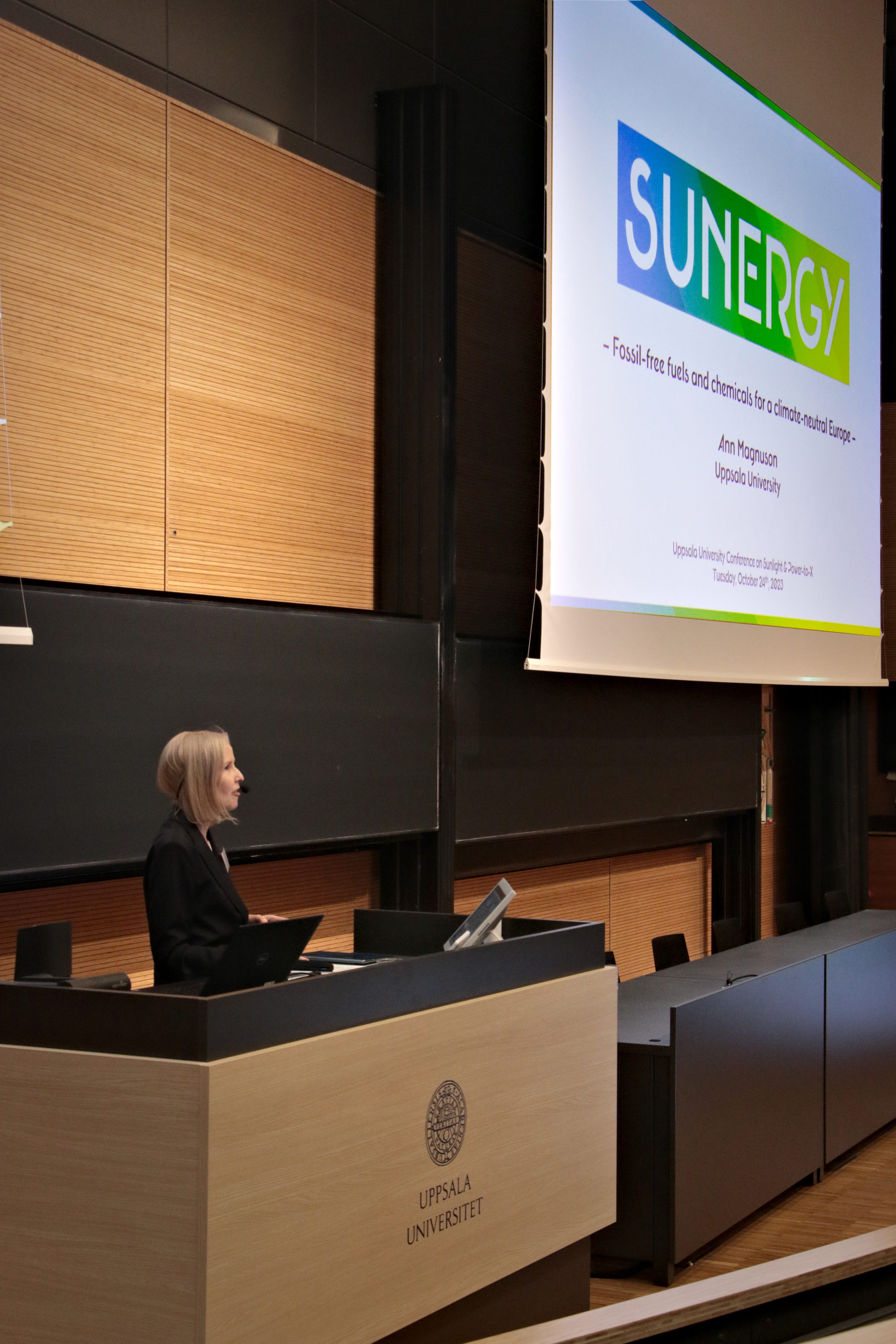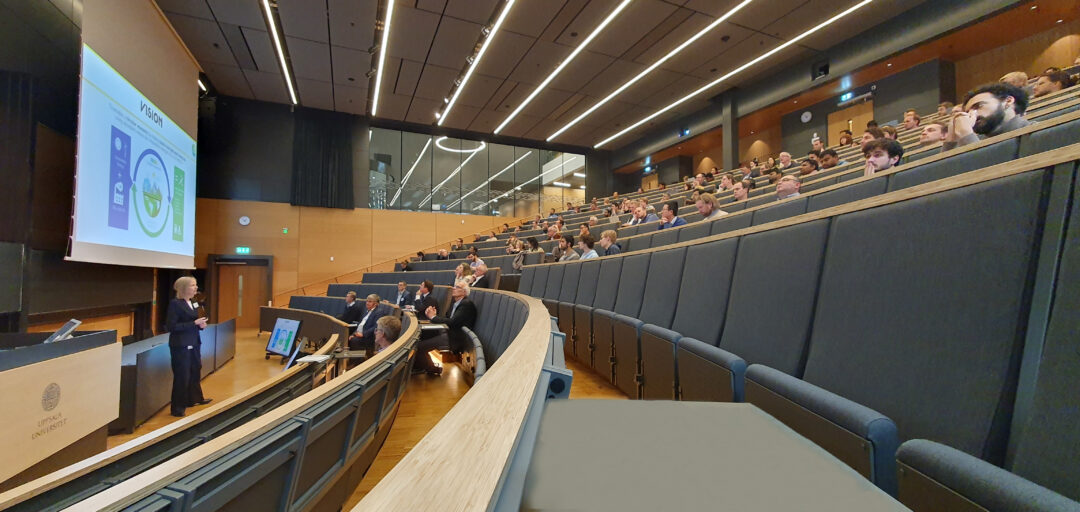On October 24-26, SUNER-C and the Swedish Consortium for Artificial Photosynthesis co-organized a conference titled: ”Uppsala University Conference on Sunlight- and Power-to-X: Solar Fuels, Electrofuels, Green Hydrogen and CO2-valorization.”
The conference covered a wide field of research and innovation towards the sustainable production, use, and implementation of fossil-free fuels and base chemicals, by direct hydrogen production and CO2 valorization from renewable energy and abundant molecules (CO2, water, nitrogen).
The event brought together both Swedish and European researchers, companies, policymakers, and other stakeholders, with a common interest in the development of solar fuels, electro-fuels, and sustainable base chemicals in Sweden and Europe. The different sessions covered the state-of-the-art in areas such as electrocatalysis, artificial photosynthesis, CO2 conversion, advanced microbial cell factories, and scaleup and implementation strategies.
The event began with an introductory overview of the area of sustainable fuels and chemicals production in Europe, given by Maximilian Fleischer from Siemens Energy. After that, Ann Magnuson, vice chair of the Swedish Consortium for Artificial Photosynthesis, presented the SUNERGY initiative and project, and explained the SUNER-C vision for the European future in sustainable fuels.

Thomas Neidenmark of the Swedish Government Offices presented the work in Horizon Europe Strategic Programme Committe, and the role of partnerships in the next Work Programme, and Carina Faber of the European Innovation Council presented how the EIC works to promote research in the area of sustainable fuels.
The conference continued with scientific and technical presentations, by academic researchers as well as industrial representatives from four industrial companies (Topsoe, Liquid Wind, Perstorp and st1), 10 Swedish and European universities, one research institute, and the Regional council of Uppsala. They covered a wide range of topics but with the common vision to develop technical solutions for production of fuels and chemicals for a sustainable and climate-neutral Europe.
Participants and speakers at the conference were impressed by how the diversity and broad range of topics covered could also be both inspirational and relevant to all. The conference showed how important it is that stakeholders from a range of specialist areas can come together to discuss and inspire each other, to provide new insights and propel the technological development further towards a solution.

